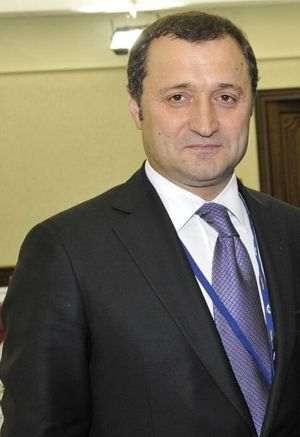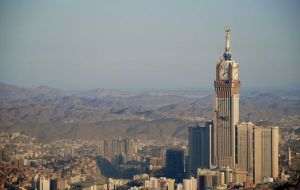The Organization for Security and Cooperation in Europe (OSCE) has generated a political and public debate without precedent since World War II. Every year, the leaders of the 55 member countries, including The US and Canada, have included anti-Semitism on their agenda. The first conference took place in Vienna in 2003, the second is taking place in Berlin these days, while the next will take place most probably in Spain next year. Is this institutional reaction a precise measure, proportionate to the actual phenomenon, or is it rather a preventive act?
The views on this matter are very diverse. The organizations representing Jewish communities in European countries and The US are on alert. In their view, there is a clear and present danger of an anti-Semitism revival, despite the fact that this danger was thought to be part of a tragic but closed chapter of history. Benjamin Meed, president of The American Gathering of Jewish Holocaust Survivors, voiced this concern quite elloquently: "I didn't think that 60 years after the Holocaust I would be invited to Europe to a conference on anti-Semitism." Leading politicians are also increasingly concerned with the proportions of the phenomenon. US Secretary of State Colin Powell bluntly said: "Today we confront the ugly reality that anti-Semitism is not just a fact of history but a current event."
The responsibility that politics and politicians bear in this respect is a significant topic, too. Political parties sending out xenophobic and anti-Semitic messages have gained awareness and even electoral support across Europe, from France and Holland to Denmark. Eastern Europe is pointed at, too. Russia, which is being monitored by The Anti-Defamation League, presents many examples of politically influenced public events and reactions based on anti-Semitism or instigating to anti-Semitism. Poland, Romania or Slovakia have had such cases, too. Outside Europe, things are even worse. In the Arab world, anti-Semitism is a basic ingredient of political and religious ideologies and sometimes even a state policy. Public expressions of anti-Semitism by certain political leaders in Romania have drawn attention to the country to the point where recent nuances about the Holocaust voiced by President Iliescu were criticized so bitterly that they prompted official reactions by The Government and Parliament of Israel. In fact, none of the European societies is entirely free of anti-Semitism, and neither is America. "Today, the coexistence of ethnicities and religions in Europe is in danger," said Paul Spiegel, president of The Central Council of Jews in Germany. "It would be grave, unfair and, to some extent, dishonest to exagerate the fear that Jews feel today by comparing present day incidents to the Holocaust," replied Simonne Veil, a leading French and European politician.
What are the causes of this phenomenon that is so differently perceived by various politicians?
The OSCE Conference on Anti-Semitism taking place this days, much like last year's edition for that matter, has not been particularly proficient in identifying the causes of this social evil. This is in fact the main weakness of the OSCE initiative. The only generally accepted connexion is the one between the aggravation of the Arab-Israeli conflict and the proliferation of anti-Semitism in Europe and elsewhere. This is in fact one of the many delicate points of this topic.
Israeli political leaders have often displayed evident "intolerance' towards any word of criticism against them. Europe was rebuked even when France or other major members tried, independently or on behalf of The EU, to become involved in achieving a peaceful solution to The Middle East conflict. On the other hand, supporting anti-Semitic acts, often brutal or murderous acts, committed in the name of the Palestinian cause does not help either. Despite all this, the voice of reason must be heard. One such voice appears to be Colin Powell's: "It is not anti-Semitic to criticize the policies of The State of Israel but the line is crossed when Israel or its leaders are demonized or villainised for example by the use of Nazi symbols and racist caricatures." Too thin a line, unfortunately, as crossing it has become common practice.
Having no serious answer regarding the causes of anti-Semitic recrudescence in the public and political life of Europe (such answers cannot come from politicians, but from independent, professional studies based on a multi-disciplinary perspective - sociology, social psychology, political science, economy, history, mentality analyses etc) OSCE diplomats asked themselves: what can be done?
Two lines of action seem to point to objectives that should be naturally complementary: combating anti-Semitism whereever it surfaces and educating people to protect themselves from one of the most toxic kinds of prejudice that creates room for a huge manipulative potential. Beyond legal measures and the attitude of the legal system towards anti-Semitism, the real issue is combating anti-Semitism in new spaces such as the media or the cybermedia. From the freedom of expression topic to the simple logic telling us that any "mind police' is usually ineffective (and sometimes triggers counter-reactions that strengthen the evil that is supposed to be fought), democracies are having difficulties finding the optimal solution.
A fundamental rule of knowledge says that no problem is solved until the problem has been very defined very precisely. Perhaps this is why The OSCE, before seeking solutions to anti-Semitism and its recrudescence, should give more thought to the nature and causes of this phenomenon in today's globalized world.


















































